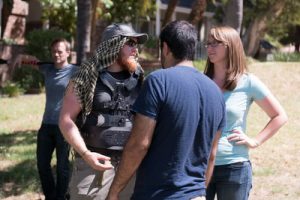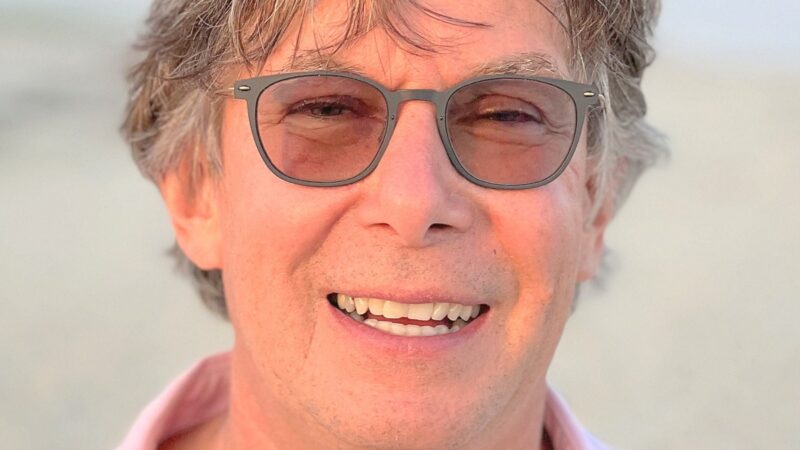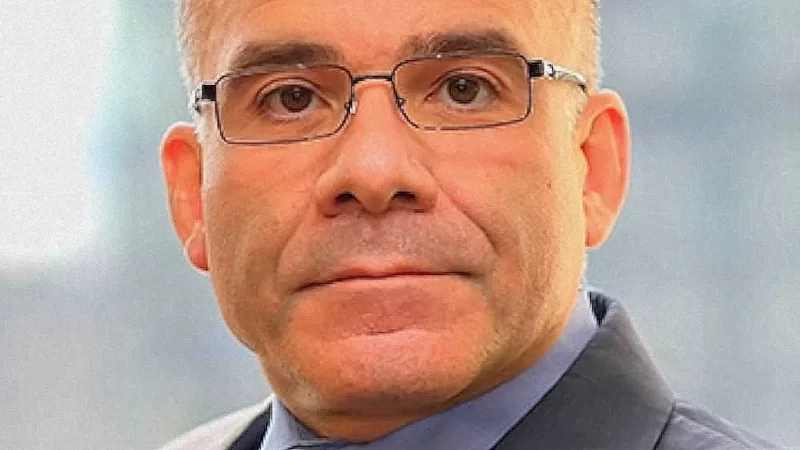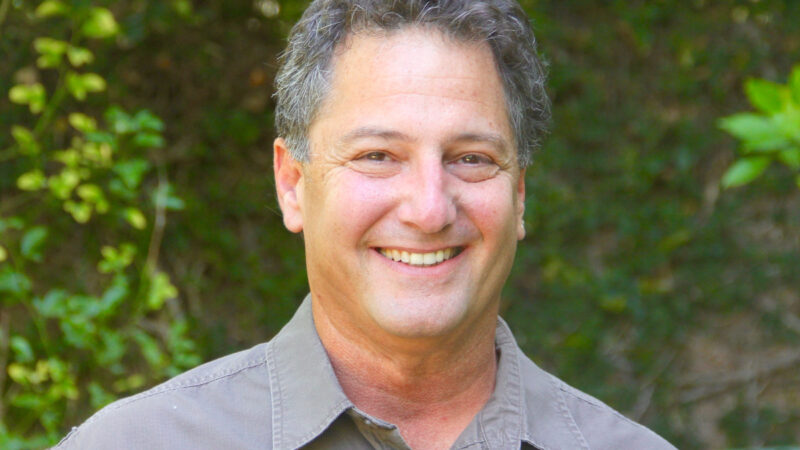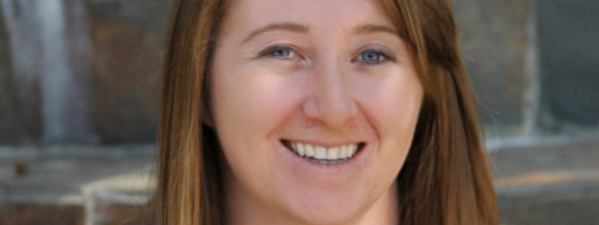
Melissa Izbicki is a narrative and commercial film producer located in Los Angeles, California. Melissa Izbicki graduated from Chapman University’s Dodge College of Film and Media Arts with an emphasis in producing and is currently an MBA candidate at Chapman University’s Argyros School of Business and Economics. Her latest feature film, The Big Day is scheduled for release in late 2016.
Sometimes you have to drop everything to follow your passion. That’s what we did on #TheBigDayMovie #WednesdayWisdom pic.twitter.com/NTlIw0OuKW
— The Big Day Movie (@TheBigDayMovie) May 11, 2016
Describe your work as a producer and or agent
A producer is basically the CEO of a film set and as such, their responsibilities are basically everything. A producer finds the right project, hires the right crew, and ensures that the project is finished on time, on schedule and on budget. They work hand in hand with the director (much like a CEO would work with a company’s President) to guide production personnel into fulfilling their vision for the project.
How did you get into producing
I was a film production major at Chapman University’s Dodge College of Film and Media Arts. While in school, I studied a variety of filmmaking subjects and ultimately decided to emphasize in producing. I think the main appeal to producing is that it allows you to get involved in every aspect of the filmmaking process. Since I’m passionate about the creative, the business, and even technical aspects of filmmaking, producing just seemed like the right fit.
Did you study producing
As mentioned earlier, I was a film production major at Chapman University’s Dodge College of Film and Media Arts. While in school, I studied producing and produced a number of short films.
How do you choose a project to produce
There are two major things I look for in a project. First, is the concept compelling? Could you pitch a complete stranger to watch your film on the log line alone? If the answer is no, I’m probably not interested. Second, strong writing is key and I’m going to be a sucker for any script where the writer has a strong grasp of story structure. I felt strongly that The Big Day achieved both of these main points, so I knew immediately that it was a film I wanted to produce.
Describe a few wrong impressions about producing
Again, I think a producer is akin to a CEO of a company — and some actors, writers, and directors don’t fully understand what that entails, especially on an independent film. It’s our job to make difficult choices, and those choices won’t always be popular among the various departments on a film shoot. I wish more actors, writers, and directors would keep in mind that some of these unpopular decisions (which usually involve saying “no” to some financial/purchasing request) always have the best interest of the production at heart. We’re not evil meisers that don’t want to spend any money, we just want to make sure that there’s enough money left over to actually finish the film and finish it well.
Just hanging out in video village with @MelissaIzbicki and @ArianHarandi #SetLife #SupportIndieFilm #TheBigDayMovie pic.twitter.com/WqNkHeekJL
— The Big Day Movie (@TheBigDayMovie) January 15, 2016
Do you take courses to improve your craft
Yes and no. I haven’t taken a course in “producing,” per say, since I graduated film school. When it comes to filmmaking, I think the best way to improve yourself as an artist is practice. You can’t get better at making movies in a classroom — you just need to go out and do it.
I do, however, value education and am constantly trying to improve my business acumen. I’m currently an MBA candidate at Chapman University’s Argyros School of Business and Economics — and without doubt the courses taken during my MBA career have proven invaluable as an entrepreneur and filmmaker.
What books do you read
My favorite filmmaking book is “Tough Shit” by Kevin Smith. While in pre-production on The Big Day, I can’t stress how helpful this book was in terms of getting over some of the roadblocks that independent filmmakers inevitably face. It was incredibly inspiring.
How do you keep in shape as a producer
In my opinion, the best way to keep in shape as a producer is to produce movies. I have currently got a few number of projects in the works, and I look forward to making them a reality in the coming years.
What do you look for when you choose an actor, writer or director
I would chose to work with an actor, writer or director based on their talent, passion, and likability. I think all of those elements are equally important.
How do you go about a project when you accepted the offer
Since I’m a producer, I’m not typically offered a project. I usually go out and find them. To be frank, if I’m going to devote a significant chunk of my life to a project, it better be something that I’m passionate about so in the rare instance that someone does offer me a project, I simply ask the question — “Is this work the time I have to put into it?”
What thing or situation helps your work on a production
I think when times get tough, and a production gets difficult, it’s incredibly helpful to have a strong support system. I’m in a very unique situation in that my filmmaking partner, Arian Harandi, also happens to be my fiancee. He keeps me in check when I’m feeling stress, or overwhelmed by something on set and vice versa.
How do you advice actors to find projects
Get involved with the major casting networks (LACasting.com, Actors Access, etc)
How can filmmakers finance their projects
Blood, sweat, and tears.
And when that isn’t enough, I recommend saving your money and at least partially financing a film with your own savings. Investors are more likely to invest in projects where the key players have skin in the game.
What do you want from a director during production
Total and complete devotion to the project. If I’m going to be working 15 hours a day, kicking ass to get a film made — I’d really like to have a director who’s right there by my side kicking ass with me.
How do you prefer to work with a director during a production
Again, I think a producer and director’s relationship is really similar to a CEO and company President. The CEO pulls the strings and does a lot of the conceptual and behind the scenes work, while the director is the “face” of the production and interacts most frequently with production personnel. I prefer to work with a director who understands this relationship and knows that we’re creative partners.
Do you get offers from overseas
No, but I’d love to work overseas, so hopefully an opportunity will come up in the future.
What can an actor do to get into the industry
I think actors need to act. If you want to be in the film industry, you need to constantly go out on auditions. Do workshops. Practice. And if no one else is hiring you, stretch your creative muscles by casting yourself in your own projects.
Who is your favorite producer
Gale Anne Hurd is hands down my favorite producer. She’s a badass.
Why
Gale Anne Hurd is the unstoppable producing force behind some of the best Sci-Fi and action films/TV of our time (The Terminator, Aliens, The Walking Dead). I think she’s a great role model for aspiring female producers.
What advice do you have for actors
Don’t argue with the director on set. It makes you look foolish, wastes everyone’s time, and you’re probably wrong.
#WednesdayWisdom 5 Lessons Learned from Financing My First Feature Film https://t.co/DAKsR0GE60 #IndieFilm #Producer pic.twitter.com/ZIsuNpDwBT
— Melissa Izbicki (@melissaizbicki) June 22, 2016
Briefly write about your career
Melissa Izbicki is a narrative and commercial film producer located in Los Angeles, California. Melissa Izbicki graduated from Chapman University’s Dodge College of Film and Media Arts with an emphasis in producing and she is currently an MBA candidate at Chapman University’s Argyros School of Business and Economics.
Her most recent work, The Big Day, is a comedy feature film scheduled for release in 2016. Notable awards/nominations include a 2010 Chapman University Cecil Award Nominee for Cinematography (The Exit), Official Selection in the Academy-Accredited 2010 LA Shorts Festival (Double Negative), NexTV’s Web Series/Short Film Competition (Double Negative), Winner of the 2008 LA Comedy Shorts Screenplay Competition (Danny Caldwell Goes to Hell), selected for the 2010 Chapman University Location Filmmaking Grant (You’ve Come a Long Way, Baby) and Official Selection in the 2012 Offshoot International Film Festival (Over the Line).
INTERVIEWS
Interview with Immediate Family Film Producer-Musicians Greg Richling, and Jonathan Sheldon
Principals of the new Film & TV music-driven Documentary Production Company Pfonetic

